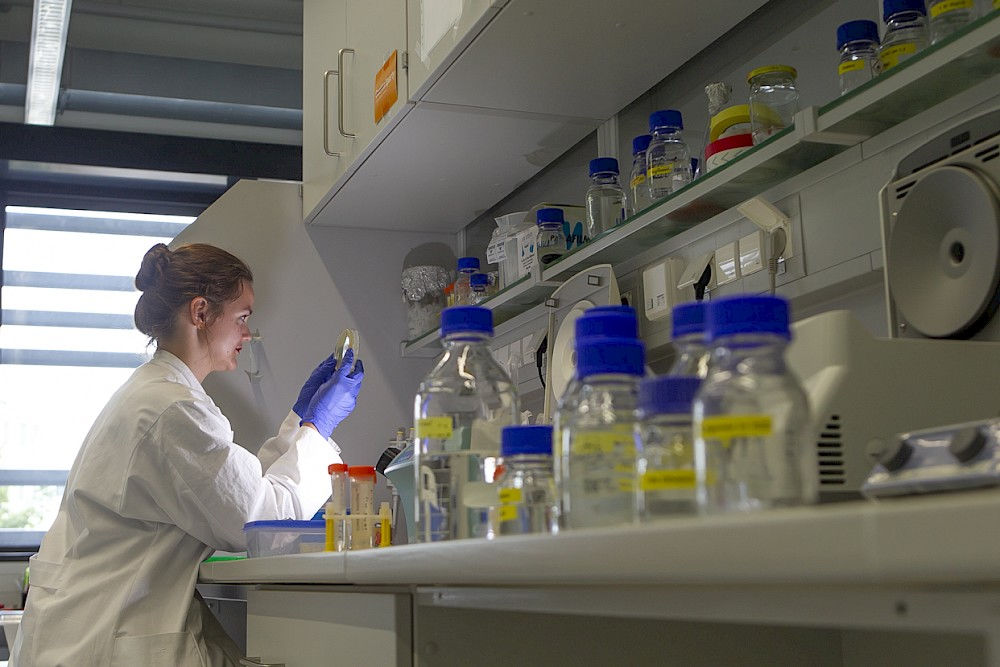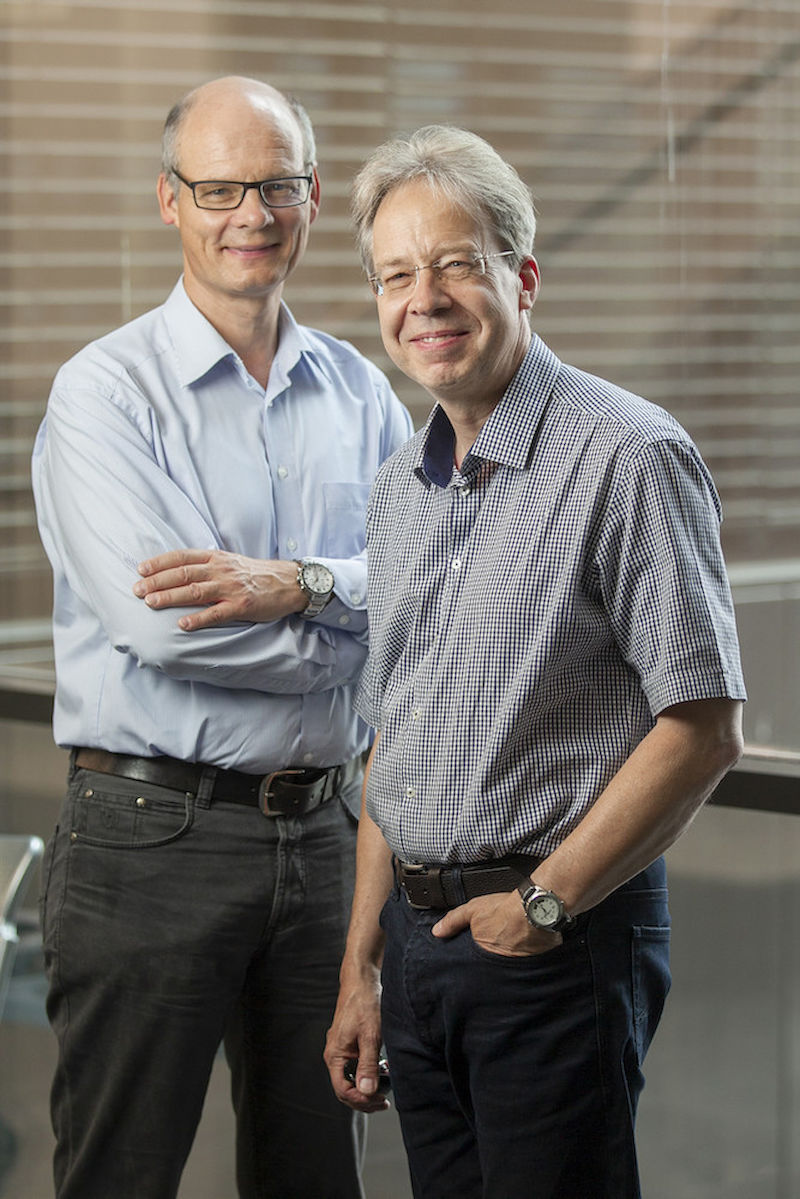Verovaccines: Vaccine developers on track for success

Verovaccines GmbH was founded in 2017 as a spin-off from Martin Luther University (MLU). It is the first company in Saxony-Anhalt to receive funding through the “Biotech Start-up Initiative”. “We are playing in the top league nationwide,” says Dr Hanjo Hennemann, managing director of Verovaccines, referring to the additional GO-Bio funding. Why? Because competition is fierce. Of the 723 applications that have been received by the Federal Ministry since 2005 only 58 have become GO-Bio projects – Halle’s project is one of them. “I am very pleased and proud of the new funding,” says Professor Sven-Erik Behrens, the company’s co-director who conducts research at the Institute of Biochemistry and Biotechnology in the new Protein Centre. As far as he is aware, this has been Saxony-Anhalt’s only project and “very few projects are able to make it past phase 2.” GO-Bio goes beyond pure research funding, forming a bridge to the corporate phase. There is already international market interest in Halle. According to Hennemann, the company is in cooperation negotiations with an international pharmaceutical company that has already successfully tested one of Verovaccines’s vaccines several times at its own expense. “This is very strong market feedback,” says Hennemann.
About ten years ago, the idea arose at MLU of using the lactic yeast Kluyveromyces lactis and virus components to produce inexpensive and highly effective vaccines to fight infectious diseases in animals. In 2013 the project received 3.2 million euros in funding as part of the initial ‘academic’ GO-Bio phase. The application had been submitted in follow-up to a project previously supported by the German government, which was started in Halle in 2008 in collaboration with molecular geneticist Professor Karin Breunig. The timeframe reveals just how much perseverance this kind of research requires. Behrens points to very expensive and complex experimental studies. It’s a completely new principle “that requires all the more testing and optimisation work to ensure that the results are accurate,” he says. Unlike conventional vaccines, Verovaccines’s innovation uses individual viral proteins rather than completely ‘inactivated’ viruses. These are produced in genetically modified yeast. Although the project is still in its pre-clinical phase, Behrens explains that reliable data on the vaccine’s safety and efficacy will be gathered in a subsequent clinical phase to be used as part of the approval process.
“We now have proof of the technology’s efficacy and that the vaccines work in animals,” says Hennemann. The team is currently working on vaccines for infectious bursal disease, bird flu and viral diarrhoea in cattle as well as two other substances for pigs and ruminants. According to Hennemann, three of these five developments have already been validated with proof-of-concept data in the target animal. In the second GO-Bio phase, the yeast strains will be optimised, and data will be generated to approve the vaccine. “We expect the first approval to be granted in 2022,” notes the managing director. The company is also working on creating combination vaccines that can be used to fight several diseases simultaneously or to fight different variants of a pathogen. A patent application for this has also already been filed. “We need new vaccines that can be administered at a reasonable cost,” stresses Hennemann. He also points out further advantages of Verovaccines’s products. They are particularly safe because they only use the virus components required to produce a protective immune response in the body. The vaccines are also heat stable and can be stored at room temperature in contrast to many other vaccines that require the cold chain to remain intact. “This is a major issue in emerging and developing countries,” says Hennemann.
Seventy per cent of the second GO-Bio phase will be financed by public funding. According to Hennemann, a consortium consisting of a venture capital company and several private investors, so-called business angels, will cover the additional funding. The search for investors can be particularly difficult in the life sciences because of the long development times and the risks involved. Verovaccines currently has eight employees.
The project could also have been handed over to an established company. “However, this would have taken away our opportunity to shape the project ourselves and, in our opinion, to be successful,” says Behrens. The ultimate goal is, of course, to enter the market. But he will only contemplate this once all hurdles have been surmounted. He believes GO-Bio is essential to working in this field and that MLU provides great support as it is so spin-off friendly. And: “For MLU, GO-Bio is of course also a further stepping stone towards more nationwide and industry-wide visibility.”
Dr Hanjo Hennemann
Verovaccines GmbH
phone: +49 345 131428-90
email: h.hennemann@verovaccines.org
Professor Sven-Erik Behrens
Institute for Biochemistry and Biotechnology
phone: +49 345 55-24960
email: sven.behrens@biochemtech.uni-halle.de

